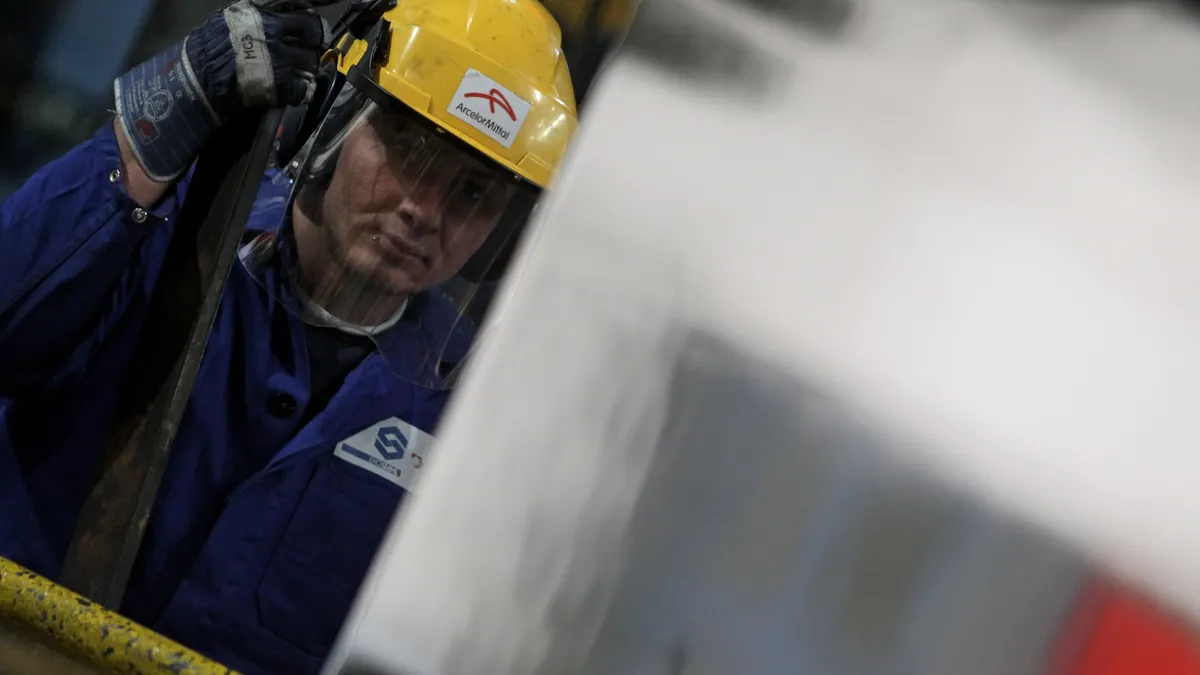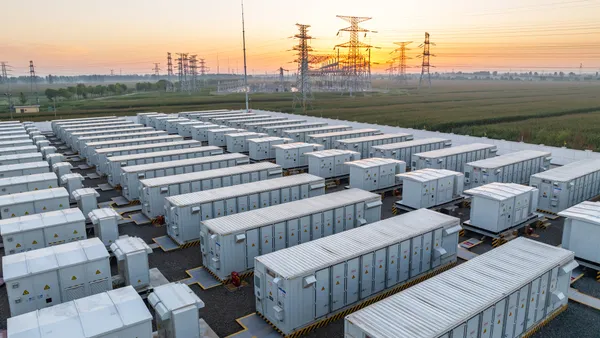Dive Brief:
- Somerville, Massachusetts-based startup Form Energy on Thursday announced the chemistry for an iron-air-exchange battery that could offer long-duration storage at a price of less than $20/kWh.
- The technology relies on thousands of small iron pellets which rust when exposed to oxygen, then revert back to iron when oxygen is removed. That process can power a battery that Form claims can deliver electricity for 100 hours.
- Form also announced a $200 million Series D funding round led by an investment from the innovation fund of steelmaker ArcelorMittal, one of the world's leading iron ore producers. ArcelorMittal will also non-exclusively supply iron materials developed jointly with Form for use in the batteries.
Dive Insight:
Mateo Jaramillo, Form CEO and co-founder, said he doesn't consider the company's technology to be long-duration storage, instead preferring the term "multi-day storage." The capacity of the Form battery to dispatch energy for 100 hours, he said, "puts it in a different category" than the broad definition of long-duration storage, generally defined as systems with at least 10 hours of duration.
Jaramillo, who previously led Tesla's energy storage arm, said he considers the Form Energy technology as "complementary, not in competition" with shorter-duration lithium-ion batteries.
That balance, experts say, will be essential to transition the grid to renewable energy. While lithium-ion batteries can store energy for hours and distribute it throughout the day, a 100% renewable grid will need larger storage systems to tackle the day-to-day or seasonal variability in renewable production. While there are a variety of long-duration technologies on the market, the high cost and infrastructure difficulties have limited widespread penetration.
Mark Jacobson, director of the Atmosphere/Energy program at Stanford University, said a $20/kWh cost — if the commercial costs end up that low — would be a "substantial breakthrough" that "would enable the rapid transition to 100% clean, renewable electricity on a worldwide scale, while avoiding blackouts, at lower cost than previously thought."
"It would eliminate the need for any more fossil fuels, nuclear power and bioenergy for electricity faster than we thought," Jacobson said in an email.
BloombergNEF found that lithium-ion battery pack prices fell to $137/kWh in 2020, with projected costs close to $100/kWh by 2023, and manufacturers like Tesla and CATL have dropped prices as low as $80/kWh. A March study published in Nature Energy found that the energy capacity cost of long-duration storage technology must fall below $20/kWh in order to reduce total carbon-free electricity system costs by at least 10%. Capacity costs would have to drop even lower to displace nuclear and natural gas plants, the study found.
The company will partner with Minnesota electric cooperative Great River Energy on a test project for the iron air exchange battery, with construction expected in 2023. Jaramillo said that other test projects are in the works but have not been announced.
"Early on, we had an indication that this type of technology had great potential," Jaramillo said. "Now we have to prove the bankability of the asset itself, proving that it is durable and meets the needs of the utilities. The only way to compare one type of storage to another is in real-world operating conditions."
Besides the investment from ArcelorMittal, Form Energy has been backed by Breakthrough Energy Ventures, the Bill Gates-led climate investment fund. A November 2020 Series C funding round raised $76 million, including investments from Energy Impact Partners, Temasek and NGP Energy Technology Partners III.














